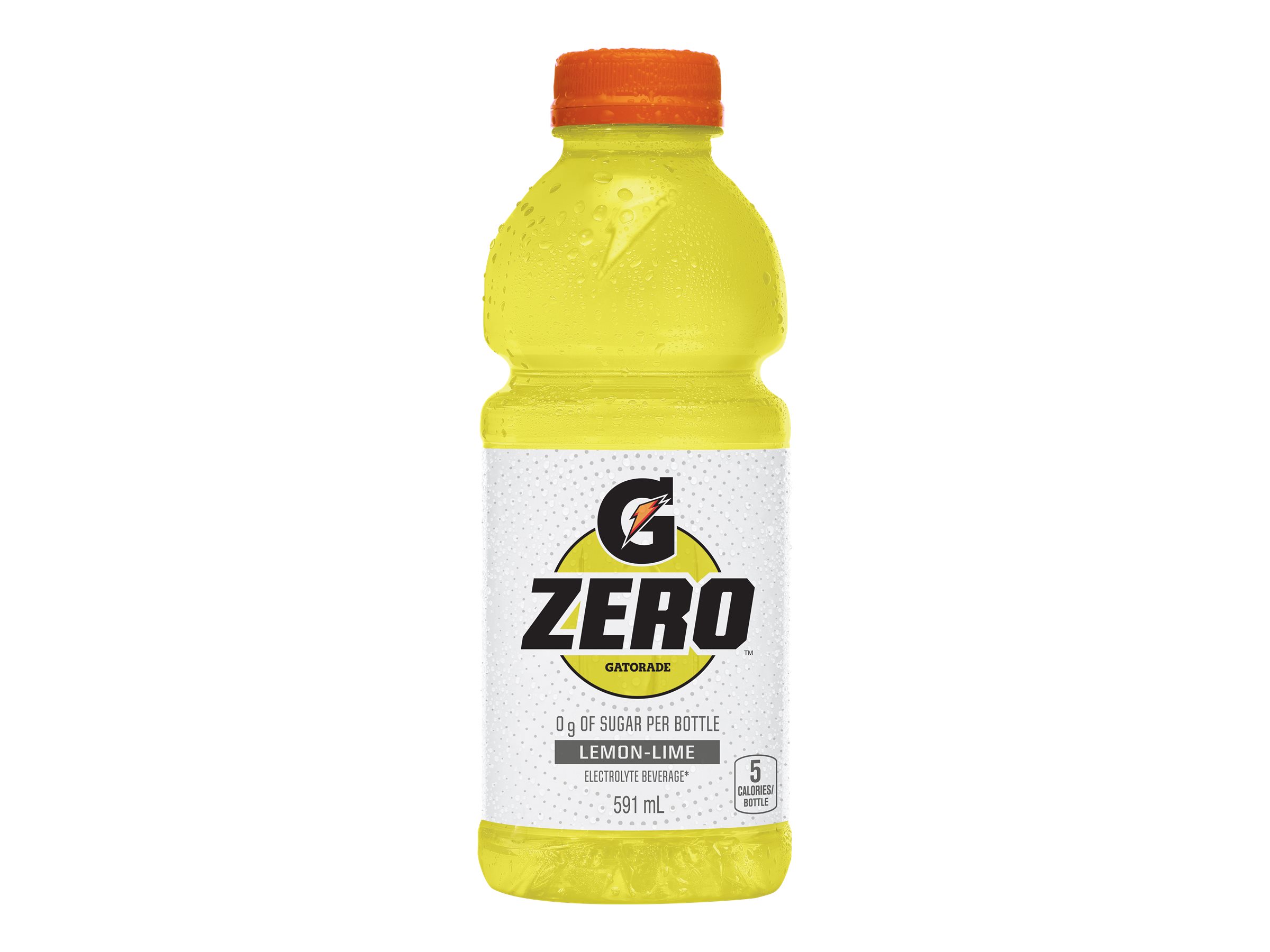Home>Health and Wellness>The Shocking Truth About Gatorade Zero: Is It Secretly Harming Your Health?


Health and Wellness
The Shocking Truth About Gatorade Zero: Is It Secretly Harming Your Health?
Published: January 15, 2024
Discover the truth about Gatorade Zero and its potential impact on your health. Uncover the hidden risks and make informed choices for your health and wellness.
(Many of the links in this article redirect to a specific reviewed product. Your purchase of these products through affiliate links helps to generate commission for Regretless.com, at no extra cost. Learn more)
Table of Contents
Introduction
In today's fast-paced world, staying hydrated is essential for maintaining good health. Many people turn to sports drinks to replenish electrolytes and quench their thirst after a rigorous workout or a day spent under the scorching sun. Gatorade, a prominent name in the sports drink industry, has long been associated with rehydration and replenishment, offering a range of products tailored to athletes and fitness enthusiasts. Among its lineup is Gatorade Zero, which has gained popularity as a low-calorie, sugar-free option for those seeking a healthier alternative to traditional sports drinks.
However, amidst the buzz surrounding Gatorade Zero's appeal, questions have surfaced about the potential impact of its ingredients on health. As consumers become increasingly conscious of the substances they ingest, scrutiny has intensified, prompting a closer examination of the components that constitute this seemingly virtuous beverage. The allure of zero sugar and low-calorie content has prompted many to embrace Gatorade Zero as a guilt-free indulgence, but beneath the surface, there may be hidden truths that warrant consideration.
In the following sections, we will delve into the composition of Gatorade Zero, exploring its ingredients and shedding light on the potential health risks associated with its consumption. Additionally, we will navigate the contentious terrain of artificial sweeteners, a key component of Gatorade Zero, and weigh the controversies surrounding their use. Ultimately, this exploration aims to provide a comprehensive understanding of Gatorade Zero, empowering consumers to make informed choices about their hydration habits and overall well-being.
What is Gatorade Zero?
Gatorade Zero, a product of the Gatorade brand, is a sugar-free, low-calorie sports drink designed to replenish electrolytes and hydrate the body without the added sugars found in traditional Gatorade products. Marketed as a performance-enhancing beverage, Gatorade Zero caters to individuals seeking a healthier alternative to sugary drinks while still aiming to meet their hydration needs.
This zero-calorie sports drink is specifically formulated for athletes, fitness enthusiasts, and anyone leading an active lifestyle. It is positioned as an option to support rehydration and electrolyte replenishment without the guilt of consuming excess calories or sugar. Gatorade Zero offers a range of flavors, providing consumers with a variety of options to suit their preferences.
The absence of sugar in Gatorade Zero is a notable departure from the original Gatorade formula, which is known for its carbohydrate content derived from sugars. By eliminating sugar, Gatorade Zero targets individuals who are mindful of their sugar intake, including those managing conditions such as diabetes or simply aiming to reduce their overall sugar consumption.
The drink's composition includes electrolytes such as sodium and potassium, essential for maintaining proper hydration and supporting muscle function during physical activity. Furthermore, Gatorade Zero is fortified with vitamins, serving as an added nutritional benefit for those seeking more than just hydration from their sports drink.
Gatorade Zero's emergence reflects a growing trend in the beverage industry, with an increasing demand for low-calorie and sugar-free alternatives. As health-conscious consumers continue to prioritize wellness and scrutinize the nutritional content of the products they consume, Gatorade Zero has positioned itself as a contender in the market, offering a solution for individuals seeking a balance between hydration, flavor, and health-conscious choices.
The Ingredients of Gatorade Zero
Gatorade Zero prides itself on being a low-calorie, sugar-free sports drink, making it essential to scrutinize its ingredients to understand its composition fully. The following components form the foundation of Gatorade Zero:
Water:
Water serves as the primary ingredient in Gatorade Zero, fulfilling its fundamental role in hydration. Adequate hydration is crucial for overall health and well-being, making water the cornerstone of any rehydration beverage.
Electrolytes:
Gatorade Zero contains essential electrolytes, including sodium and potassium. These minerals play a pivotal role in regulating fluid balance within the body and supporting proper muscle function. During physical activity, electrolyte loss through sweat can impact performance and overall well-being. Gatorade Zero aims to replenish these vital electrolytes, aiding in maintaining hydration levels during and after exercise.
Citric Acid:
Citric acid is included in Gatorade Zero for flavor enhancement and preservation. It contributes to the drink's refreshing taste, adding a tangy zest that appeals to consumers. Additionally, citric acid serves as a natural preservative, extending the shelf life of the product.
Natural and Artificial Flavors:
Gatorade Zero incorporates a blend of natural and artificial flavors to deliver a diverse range of taste experiences. These flavors are carefully selected and combined to create the distinct profiles found in the various Gatorade Zero offerings, catering to a spectrum of consumer preferences.
Sucralose:
As a sugar substitute, sucralose provides the sweet taste without the caloric content of sugar. It is a key component in Gatorade Zero, contributing to its appeal as a sugar-free beverage. Sucralose is several hundred times sweeter than sugar, allowing for the desired level of sweetness without the added carbohydrates.
Acesulfame Potassium:
Acesulfame potassium, often referred to as Ace-K, is another artificial sweetener present in Gatorade Zero. It complements sucralose in delivering the drink's sweet taste without the caloric load of sugar. The combination of sucralose and acesulfame potassium enables Gatorade Zero to achieve its sugar-free status while maintaining a palatable flavor profile.
Coloring Agents:
Gatorade Zero incorporates various coloring agents to achieve its vibrant and distinct hues across its flavor range. These coloring agents are carefully selected to ensure visual appeal while meeting regulatory standards for food and beverage coloring.
By comprehensively examining the ingredients of Gatorade Zero, consumers can gain insight into the components that constitute this popular sports drink. Understanding the role of each ingredient is essential for making informed decisions about its consumption and considering its potential impact on individual health and well-being.
The Potential Health Risks
While Gatorade Zero presents itself as a sugar-free, low-calorie sports drink catering to health-conscious consumers, it is crucial to acknowledge the potential health risks associated with its consumption. Despite its appeal as a guilt-free hydration option, several factors warrant consideration when evaluating the impact of Gatorade Zero on individual health.
Artificial Sweeteners: Gatorade Zero relies on artificial sweeteners such as sucralose and acesulfame potassium to achieve its sugar-free status. While these sweeteners offer a calorie-free alternative to sugar, concerns have been raised regarding their long-term effects on health. Some studies have suggested a potential link between artificial sweeteners and adverse metabolic effects, impacting factors such as glucose tolerance and insulin sensitivity. Furthermore, the influence of artificial sweeteners on gut microbiota and their potential to induce cravings for sweet foods pose additional considerations for consumers.
Electrolyte Imbalance: While Gatorade Zero aims to replenish electrolytes lost during physical activity, excessive consumption may lead to an imbalance in electrolyte levels. The drink's sodium and potassium content, while essential for hydration, must be consumed in moderation to avoid disrupting the body's electrolyte equilibrium. Prolonged imbalances in electrolyte levels can have adverse effects on cardiovascular health and overall well-being, underscoring the importance of mindful consumption.
Hydration Perception: The availability of sugar-free sports drinks like Gatorade Zero may inadvertently influence individuals to overlook the importance of water as the primary source of hydration. While Gatorade Zero serves a specific purpose in rehydration for athletes and individuals engaged in vigorous physical activity, overreliance on sports drinks may lead to a diminished emphasis on adequate water intake. This shift in hydration behavior can impact overall fluid balance and potentially compromise optimal hydration practices.
Nutritional Deficiency: As consumers embrace Gatorade Zero for its sugar-free and low-calorie attributes, there is a risk of overlooking the nutritional benefits provided by whole foods and natural sources of electrolytes and vitamins. Relying solely on sports drinks for hydration may inadvertently contribute to a lack of essential nutrients obtained from a balanced diet, potentially leading to nutritional deficiencies over time.
In light of these potential health risks, it is imperative for consumers to approach Gatorade Zero and similar products with a discerning mindset. While the drink offers a viable option for rehydration, moderation and awareness of its potential implications are essential for safeguarding individual health and well-being. By understanding the nuances of Gatorade Zero's composition and its possible effects, consumers can make informed decisions regarding its inclusion in their hydration regimen.
The Controversy Surrounding Artificial Sweeteners
Artificial sweeteners, including those used in Gatorade Zero, have been at the center of ongoing debates and discussions within the realm of nutrition and public health. These non-nutritive sweeteners, designed to provide sweetness without the caloric load of sugar, have garnered both support and skepticism due to their potential impact on human health.
One of the primary concerns surrounding artificial sweeteners is their influence on metabolic processes and overall metabolic health. Research studies have yielded conflicting findings, with some suggesting that artificial sweeteners may disrupt glucose tolerance and insulin sensitivity, potentially impacting metabolic function. These findings have raised questions about the long-term implications of regular artificial sweetener consumption, particularly for individuals managing conditions such as diabetes or those aiming to maintain stable blood sugar levels.
Furthermore, the effects of artificial sweeteners on gut microbiota have emerged as a point of interest within the scientific community. The intricate balance of gut bacteria plays a crucial role in overall health, with implications for immune function, digestion, and nutrient absorption. Some studies have indicated that artificial sweeteners may alter the composition of gut microbiota, raising concerns about potential repercussions for digestive health and metabolic processes.
Another aspect of the controversy surrounding artificial sweeteners pertains to their potential to influence cravings and food preferences. While intended to provide sweetness without the caloric burden, artificial sweeteners may impact the brain's reward pathways, potentially leading to increased cravings for sweet foods. This phenomenon has prompted discussions about the broader implications of artificial sweeteners on dietary habits and their potential role in shaping individual food preferences and consumption patterns.
While the controversy surrounding artificial sweeteners persists, it is essential to approach the topic with a balanced perspective, considering both the potential benefits and risks associated with their consumption. As consumers navigate the landscape of sugar-free alternatives such as Gatorade Zero, a nuanced understanding of the controversy surrounding artificial sweeteners can empower informed decision-making, allowing individuals to weigh the available evidence and make choices aligned with their health and wellness goals.
The Importance of Moderation
In the realm of nutrition and dietary choices, the principle of moderation stands as a guiding beacon, urging individuals to approach consumption with mindfulness and balance. This principle holds particular relevance when considering the inclusion of beverages such as Gatorade Zero in one's hydration regimen. While Gatorade Zero offers a sugar-free, low-calorie option for rehydration and electrolyte replenishment, the significance of moderation cannot be overstated.
Moderation, in the context of Gatorade Zero and similar sports drinks, encompasses multiple dimensions, each carrying implications for individual health and well-being. Firstly, moderation pertains to the frequency and quantity of consumption. While Gatorade Zero serves as a viable solution for rehydration, excessive and habitual intake may lead to unintended health consequences. By consuming Gatorade Zero in moderation, individuals can strike a balance between fulfilling their hydration needs and mitigating potential risks associated with its ingredients.
Furthermore, moderation extends to the broader spectrum of dietary choices and hydration practices. Embracing a diverse array of hydration sources, including water, herbal teas, and natural fruit-infused water, contributes to a well-rounded approach to fluid intake. By diversifying hydration sources, individuals can avoid overreliance on any single beverage, thereby reducing the likelihood of disproportionate consumption of specific ingredients or additives present in sports drinks like Gatorade Zero.
In the context of Gatorade Zero's artificial sweeteners and electrolyte content, moderation serves as a safeguard against potential imbalances and overexposure. The careful and mindful integration of Gatorade Zero into one's overall dietary and hydration habits allows individuals to enjoy the benefits of the beverage while mitigating the risks associated with excessive consumption, particularly in relation to artificial sweeteners and electrolyte levels.
Moreover, moderation aligns with the overarching principle of holistic wellness, emphasizing the importance of a balanced and varied diet. While Gatorade Zero offers a tailored solution for rehydration, it should be complemented by a diverse array of nutrient-dense foods and beverages, ensuring that essential vitamins, minerals, and hydration sources are obtained from multiple sources.
By embracing moderation in the context of Gatorade Zero and similar sports drinks, individuals can navigate the nuanced landscape of hydration choices while prioritizing their health and well-being. The principle of moderation empowers consumers to make informed decisions, fostering a harmonious approach to hydration that integrates the benefits of sports drinks with the wisdom of balanced consumption.
Conclusion
In conclusion, the landscape of sports drinks has evolved to accommodate the diverse preferences and health-conscious inclinations of consumers. Gatorade Zero, positioned as a sugar-free, low-calorie option for rehydration and electrolyte replenishment, has garnered attention for its innovative approach to meeting the needs of athletes, fitness enthusiasts, and individuals seeking a healthier alternative to traditional sports drinks. However, the exploration of Gatorade Zero's composition and potential health implications illuminates the importance of informed decision-making and mindful consumption.
The ingredients of Gatorade Zero, including electrolytes, artificial sweeteners, natural flavors, and coloring agents, provide a comprehensive view of the drink's composition. While the absence of sugar and low-calorie content align with contemporary wellness trends, the presence of artificial sweeteners raises considerations about their long-term impact on metabolic health and dietary habits. The potential health risks associated with Gatorade Zero, encompassing electrolyte imbalances, hydration perceptions, and nutritional deficiencies, underscore the need for a discerning approach to its consumption.
Amidst the controversy surrounding artificial sweeteners, consumers are encouraged to engage with a balanced perspective, weighing the available evidence and considering their individual health goals. The principle of moderation emerges as a guiding beacon, emphasizing the significance of balanced consumption, diversified hydration sources, and holistic wellness practices. By embracing moderation, individuals can harness the benefits of Gatorade Zero while mitigating potential risks, fostering a harmonious approach to hydration that integrates the wisdom of balanced consumption.
As the discourse surrounding Gatorade Zero and similar sports drinks continues to unfold, the empowerment of consumers through knowledge and informed decision-making remains paramount. By leveraging a nuanced understanding of Gatorade Zero's composition and the broader implications of its consumption, individuals can navigate the dynamic landscape of hydration choices while prioritizing their health and well-being. Ultimately, the journey of wellness is enriched by the fusion of mindful consumption, informed choices, and a holistic approach to hydration, positioning individuals to embrace a balanced and empowered relationship with their rehydration practices.












